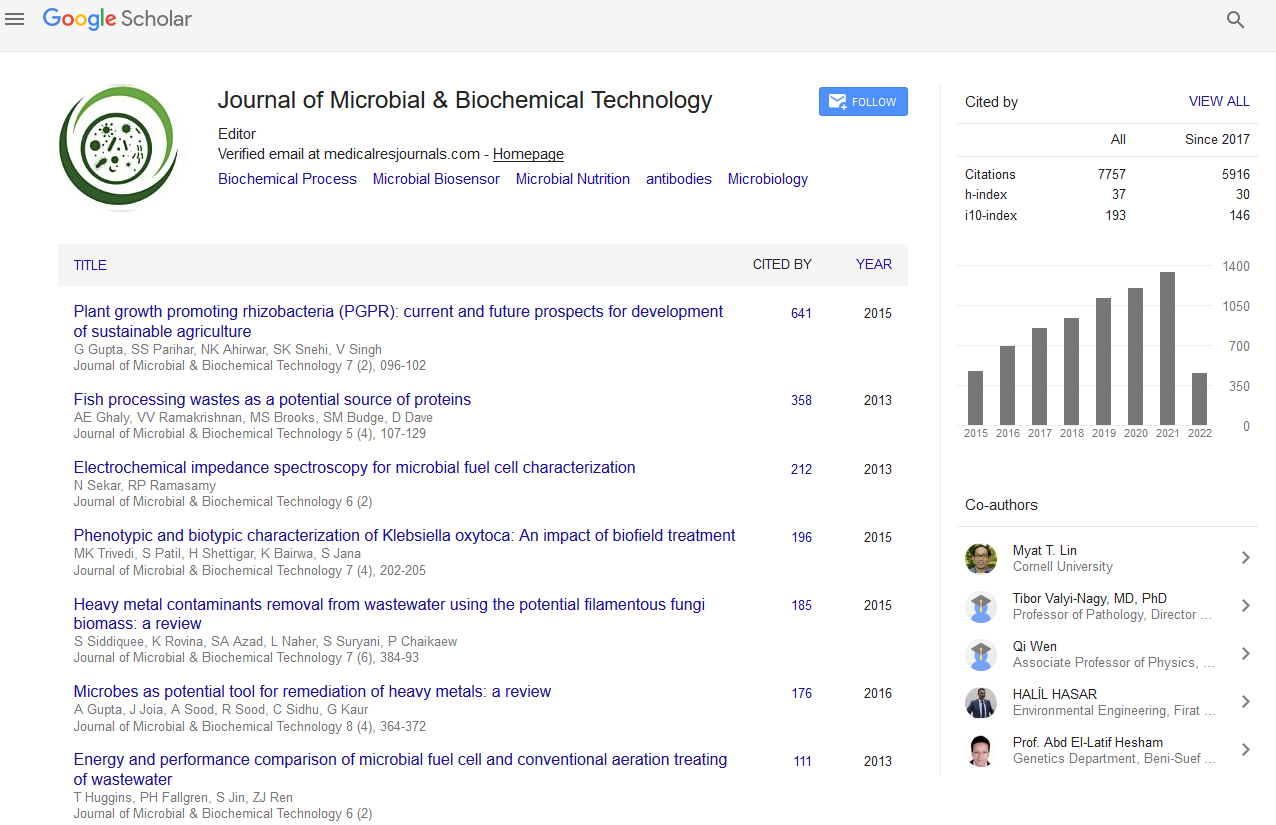PMC/PubMed Indexed Articles
Indexed In
- Academic Journals Database
- Genamics JournalSeek
- Academic Keys
- JournalTOCs
- China National Knowledge Infrastructure (CNKI)
- Scimago
- Access to Global Online Research in Agriculture (AGORA)
- Electronic Journals Library
- RefSeek
- Directory of Research Journal Indexing (DRJI)
- Hamdard University
- EBSCO A-Z
- OCLC- WorldCat
- SWB online catalog
- Virtual Library of Biology (vifabio)
- Publons
- MIAR
- University Grants Commission
- Geneva Foundation for Medical Education and Research
- Euro Pub
- Google Scholar
Useful Links
Share This Page
Journal Flyer

Open Access Journals
- Agri and Aquaculture
- Biochemistry
- Bioinformatics & Systems Biology
- Business & Management
- Chemistry
- Clinical Sciences
- Engineering
- Food & Nutrition
- General Science
- Genetics & Molecular Biology
- Immunology & Microbiology
- Medical Sciences
- Neuroscience & Psychology
- Nursing & Health Care
- Pharmaceutical Sciences
Can penicillin-bound nanoparticles restore the activity of Ã?-lactam antibiotics against methicillin- resistant Staphylococcus aureus?
World Congress and Expo on Applied Microbiology
August 18-20, 2015 Frankfurt, Germany
Nashwa Khadr
Alexandria University, Egypt
Posters-Accepted Abstracts: J Microb Biochem Technol
Abstract:
Loss of effectiveness of commonly used antibiotics such as penicillin and other β-lactam drugs against MRSA lead to calling for immediate need for improvement in drug design, discovery, and delivery. The application of nanotechnology to drug delivery system is widely expected to change the landscape of pharmaceutical and biotechnology industries for foreseeable future, where nanoparticles represent a very promising approach to this aim. The aim of this work was to assess whether penicillin-bound nanoparticles will display antibacterial activity against MRSA and to determine the bioactivity of penicillinbound nanoparticles. Staphylococcus aureus isolates were subjected to oxacillin and cefoxitin disc diffusion method, and PCR for detection of mecA gene for identification of MRSA and MSSA isolates. Fifty MRSA and 30 MSSA were selected and further tested. Determination of Penicillin and Penicillin-bound nanoparticles MIC by broth microdilution method was performed. All MRSA isolates were resistant to penicillin using both methods. As for the MSSA isolates, using penicillin-bound nanoparticles, none displayed resistance at a dilution of �?� 512 μg/ml (0.0%), 10 (33%) revealed an MIC of �?�16 μg/ml, whereas 7 revealed an MIC of 16 μg/ml. It was observed that 3 isolates (10%) of MSSA turned sensitive to penicillin when performing the MIC broth microdilution test, using penicillin-bound nanoparticles. Though 27 MSSA isolate remained resistant; yet the MIC of penicillin-bound nanoparticles was significantly reduced. In conclusion, penicillin-bound nanoparticles was effective only with MSSA producing penicillinase in reducing MIC of penicillin or even making MSSA sensitive to penicillin. But with MRSA, penicillin-bound nanoparticles gave no effect.


